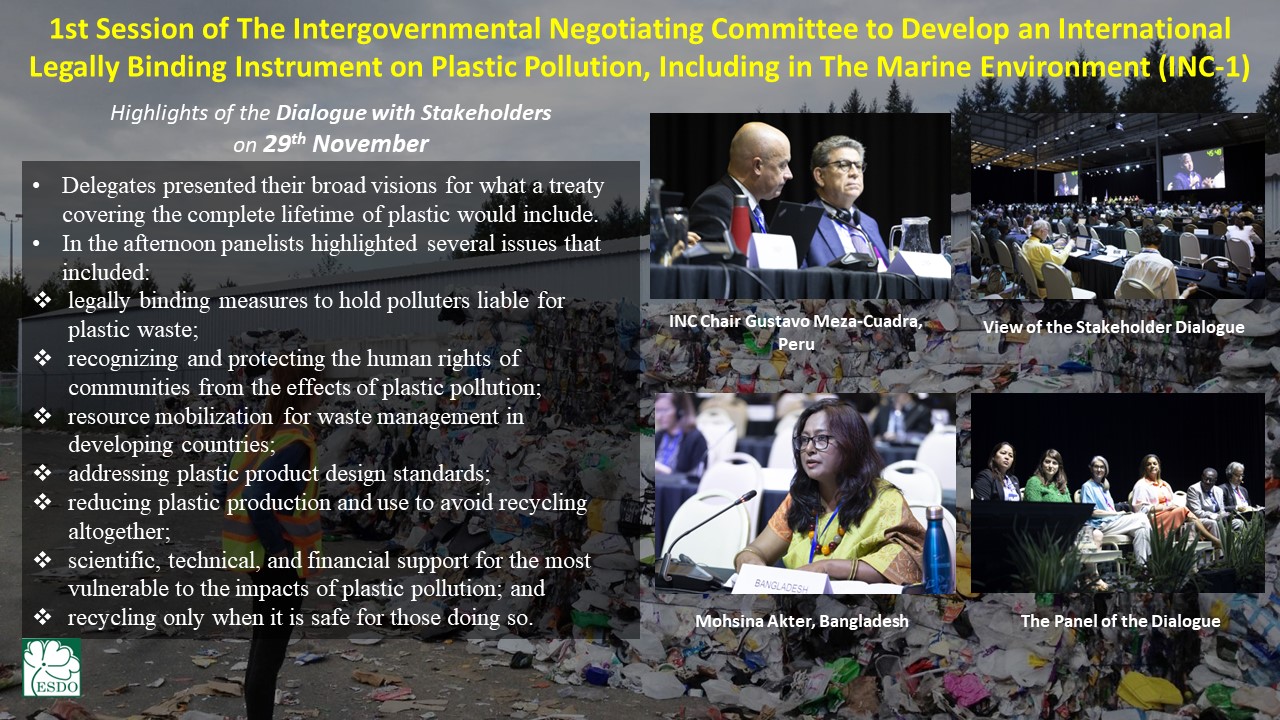Day 2: 1st Session of the Intergovernmental Negotiating Committee to develop an international legally binding instrument on plastic pollution, including in the marine environment (INC-1)

Highlights of Dialogue with Stakeholders on 29th November
On day two of the first meeting of the Intergovernmental Negotiating Committee (INC-1), delegates held a dialogue with stakeholders during “normal negotiating hours” at Punta del Este, Uruguay, on November 29, 2022.
The morning session, which was presided over by INC Chair Gustavo Meza-Cuadra of Peru, saw delegates continue to present their broad visions for what a treaty covering the complete lifetime of plastic would include. There are a number of common national initiatives to reduce plastic pollution, some of which provide instances of local and international efforts to avoid marine plastic pollution, while others concentrate on the banning and taxing of specific single-use plastic goods. Others also discussed difficulties and learnings they encountered while working on projects involving environmental microplastics.
In the afternoon, during an innovative session organized by the INC Secretariat, a stakeholder dialogue took place. Delegates heard from two panels, comprising representatives from government, civil society, academia, and the private sector, including plastic producers. Panelists highlighted, among several other issues:
• legally binding measures to hold polluters liable for plastic waste;
• recognizing and protecting the human rights of communities from the effects of plastic pollution;
• resource mobilization for waste management in developing countries;
• addressing plastic product design standards;
• reducing plastic production and use to avoid recycling altogether;
• scientific, technical, and financial support for the most vulnerable to the impacts of plastic pollution; and
• recycling only when it is safe for those doing so.


